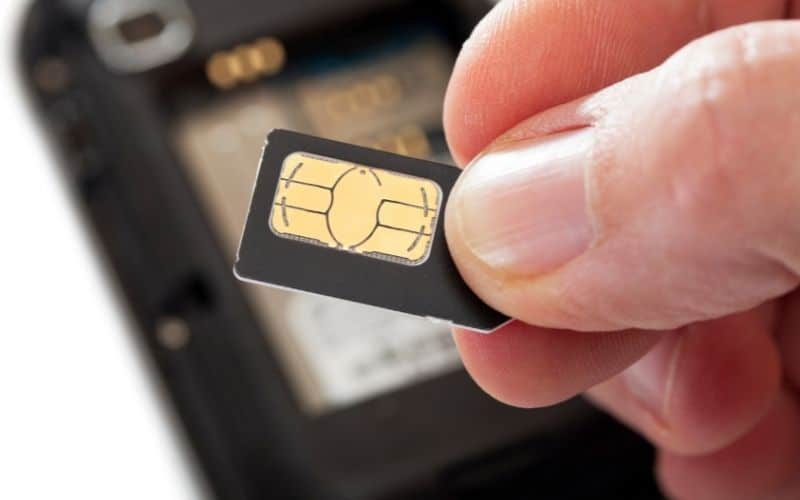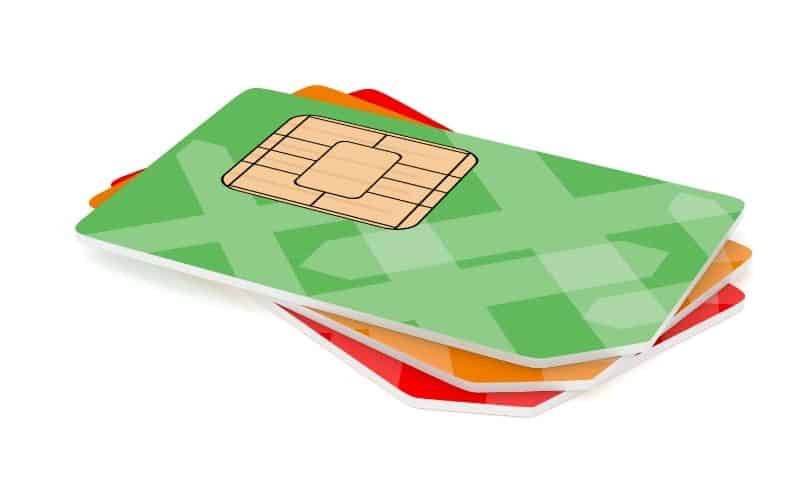What Does A SIM Card Do?

Table of Contents
One of the most integral physical components in your phone is your SIM card.
We all likely already know that the SIM card often has something to do with our phone number, and we know we don't get signal nor access to our telephone number unless our specific SIM card is installed.
Prime Day is finally here! Find all the biggest tech and PC deals below.
- Sapphire 11348-03-20G Pulse AMD Radeon™ RX 9070 XT Was $779 Now $739
- AMD Ryzen 7 7800X3D 8-Core, 16-Thread Desktop Processor Was $449 Now $341
- ASUS RTX™ 5060 OC Edition Graphics Card Was $379 Now $339
- LG 77-Inch Class OLED evo AI 4K C5 Series Smart TV Was $3,696 Now $2,796
- Intel® Core™ i7-14700K New Gaming Desktop Was $320.99 Now $274
- Lexar 2TB NM1090 w/HeatSink SSD PCIe Gen5x4 NVMe M.2 Was $281.97 Now $214.98
- Apple Watch Series 10 GPS + Cellular 42mm case Smartwatch Was $499.99 Now $379.99
- ASUS ROG Strix G16 (2025) 16" FHD, RTX 5060 gaming laptop Was $1,499.99 Now $1,274.99
- Apple iPad mini (A17 Pro): Apple Intelligence Was $499.99 Now $379.99
*Prices and savings subject to change. Click through to get the current prices.
But what actually is a SIM card and how does it complete all these functions?
Read on to learn more about your phone as well as how to get the most out of it.

What Is A SIM Card?
Put simply, a SIM card is a piece of hardware, a physical component that has to physically be part of your phone for certain operations to function.
SIM stands for Subscriber Identity Module, they have a unique ID number or IMSI (International Mobile Subscriber Identity) which uniquely identifies your phone to the network you are using, allowing them to provide signal, and connect to mobile internet services such as 3G, and 4G.
To simplify this, your SIM card can be treated as the hardware that is associated with your phone number and its unique relationship with your network.
Without your SIM card you cannot message anyone, nor will your contacts be saved, and importantly you won't be able to make calls or texts without this connection to your network.
This SIM card is basically your ID card that you need to get into the mobile network club so you can talk to your friends, without this they don't know who you are and can't track you or provide you with an accurate phone bill.
This network is known as the GMS or Global System of Mobile Communications. This is the network we rely on for texts and phone calls.
Why Are SIM Cards Useful?
One big reason people don't get SIM cards is that they fail to understand its physicality. That is to say their physical function in the phone isn't clear.
This is because a SIM card could technically exist as a piece of software, however its physicality gives it lots of advantages.
Firstly, having a physical card allows you to transfer it between phones. In emergencies, if your phone is dead and you are stuck in the outback or something, you can transfer your SIM card to another phone so that you can still access your contact list.
Secondly, having your SIM be a physical thing means that you can also transfer it between phones when you upgrade. If the SIM card was a bit of software, transferring them between phones can really be troublesome.
Thirdly, this can form a big part of a phone's security. If you wanted to wipe your texts from a phone or you were worried about your phone being monitored, which is unlikely, but this allows you to physically break your SIM card and get rid of this connection to a network. Hard drives are often physical for this reason, so you can destroy them.
Lastly, this means your phone company can easily make sure your SIM card is frozen, protecting your personal data and information, if your phone has been stolen or lost.
Final Thoughts
What's clear is that the SIM card is a well thought out piece of hardware that physical nature affords many advantages to the phone and its users. Without a SIM card we wouldn't be able to connect to the mobile network we rely on to send text messages and phone calls.
You can still connect to the internet without a SIM card, but you cannot use 3G or 4G.

